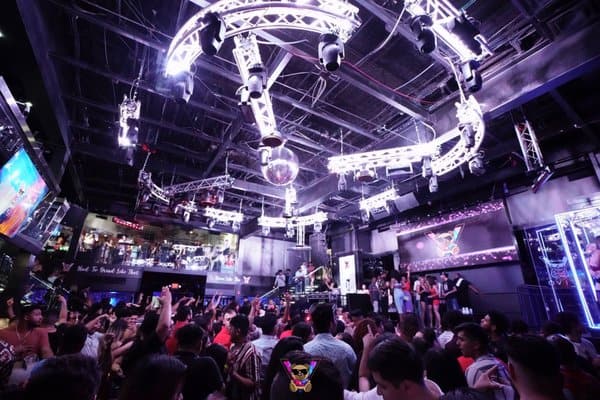Become the best version of yourself
Get unlimited access to several Salsa, Bachata, Mambo, Afro-Cuban classes in a week. All led by expert trainers.
Venue Info:
1930 Pacific Ave Dallas, TX 75201
Doors Open:
Thursday October 19th 9pm
get in touch
The son of Puerto Rican immigrants, Puente grew up in New York City’s Spanish Harlem. At age 13 he became a professional musician, and he eventually learned to play a number of instruments, including the piano, saxophone, vibraphone, and timbales (paired high-pitched drums). After an apprenticeship in the historic Machito Orchestra (a New York-based Latin jazz


The son of Puerto Rican immigrants, Puente grew up in New York City’s Spanish Harlem. At age 13 he became a professional musician, and he eventually learned to play a number of instruments, including the piano, saxophone, vibraphone, and timbales (paired high-pitched drums). After an apprenticeship in the historic Machito Orchestra (a New York-based Latin jazz group established in 1939), he served in the navy during World War II. Following his discharge, Puente studied at the Juilliard School.
In 1947 Puente formed his own 10-piece band, which he expanded two years later to include four trumpets, three trombones, and four saxophones, as well as a number of percussionists and vocalists. With other Latin musicians such as Tito Rodríguez and Pérez Prado, he helped give rise in the 1950s to the golden age of mambo, a dance form of Cuban origin; his infectious energy and dynamic stage presence quickly made him a star. As his reputation grew, so too did his repertoire, through the addition of other Latin and Afro-Cuban dance rhythms such as Dominican merengue, Brazilian bossa nova, and Cuban cha-cha. The term salsa first appeared in the 1960s, when it was used to describe the music that had been the mainstay of Puente’s repertoire for decades. Although salsa—as a specific genre—is rooted in the Cuban son music, the term has often been applied generically to a wide variety of popularized Latin dance forms, such as those performed by Puente. Aside from his activities as a bandleader and instrumentalist, Puente also wrote many songs, among which “Babarabatiri,” “Ran Kan Kan,” and “Oye Como Va” have been the most popular.
Classes | Gallery | Salsa Venues | Testimonials | About SD |Facebook | Twitter | YouTube | Instagram | Salsa Events | SiteMap | Links | Latin DJs | Sunday Lessons | Salsa Lessons | Sign Up | Salsa History | Salsa Styles | Free Class Tuesday Salsa Lessons | Salsa Congresses | Friday – Glorias Addison | Class Schedule | Salsa Dance Lessons | Calendar | Courses Online | Dance Videos | Practice Class |Register | Beginners | Bachata | Mambo | Lessons | Thursday Mambo | Salsa Sunday | Salsa Saturdays | Live Concerts | India 101 | Group Lessons | Past Events | Clubs | Studio | Social | Salsa del Barrio | Jayson Molina | Studio Rental | Venue | Blue Mesa | Pura FW | Las Colinas | Social | Martini | Stratos | Register | Subscription | Heater | Thank you | Register Now | Online | Longhorn | Gilberto Santarosa | Concert | Wednesday Salsa | Thursday Stratos | Wednesday Class |